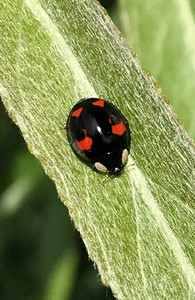Lest We Forget
- Clare
- May 9, 2020
- 4 min read
Updated: May 10, 2020

As yesterday was VE Day I felt it appropriate to make a change from the norm and to mention my two grandads who each served in different ways during the second world war. Unfortunately, I know very little about their wartime experiences; like many of their generation, they did not seem to want to talk about it, whether out of painful memories or, more simply, a desire to put the past behind them, to look forward and move on.

My maternal grandfather lived his whole life in Cheshire and, now I come to think on it (and as far as I am aware), the only time he left the U.K. was during wartime. He departed Britain on a ship that sailed out of Greenock in Scotland and, on his first day on board, questioned why a tub of grease was being smeared around the door that led below deck. The answer that the grease would enable to door to be sealed if the boat was "hit" during their passage led my grandad to spend every night thereafter sleeping on the deck!
Fortunately, grandad came home at the end of the war, though his experiences (as well as those of family he had left behind in
England) must have affected him. He was a man with a great sense of responsibility and a great love of the British countryside.

In contrast, my paternal grandfather was a farmer and therefore was needed at home, though he did spend time in the Home Guard. I do not know whether he felt regret or relief at not having to go and fight, though I imagine, with a young family at home and a busy farm to manage, it was more likely the latter.
Farming was of huge importance during the war years as food production became an integral part of the war effort. As the population was encouraged to "Dig for Victory", flower borders were turned into vegetable plots, sports fields and golf courses were dug over and there was a surge in the number of allotments.
As well as enabling people to contribute to the war effort in a very practical way, this movement of people into their gardens must have provided a degree of focus and comfort during such troubled times. It is widely accepted that gardening and a connection with the outdoors can contribute to greater physical and mental wellbeing and perhaps this has contributed to our current Government's decision to re-open garden centres next week. Whatever the reason, this must be a great relief to many in the horticultural industry.
In our own garden, the bluebells, tulips and forget me nots are fading but, in their stead, aquilegia are flowering prolifically and 'snow in summer' is spreading its carpet over the borders. The foxgloves are almost ready to flower and a small patch of red valerian has appeared in one of my larger pots (I am pleased to see it as red valerian is great for attracting bees and butterflies).
The insects in our garden are very active and my daughter and I spotted the following on our willow tree today. Willows are a great tree to search for insects as they seem to attract so many varieties. Ours has just finished flowering and, later in the year, is generally covered in ladybird larvae feeding on aphids.
We also appear to have blue tits and blackbirds nesting somewhere within our garden and, judging by the frequency with which they appear for food, their eggs have hatched! The male blackbird in particular is extremely vocal and chatters almost constantly at our poor, old cat who shows no interest and just wants to sleep in the sun. We sat alongside her yesterday afternoon as we enjoyed a picnic in the garden to mark VE Day and, sitting there amongst our few flowers, with the scent of lilac wafting across the air, I realised that we have so much to be grateful for.
For D. L., Killed in the Last War
We must fight now, not with any desire for tearing glory
From the jackets of the men we kill, and not in anger.
But in sorrow that men again must kill and be killed
Before the world you hoped for too can be called
Something more than a dream of men who are weary,
Something more than a respite of men from danger,
We must fight now.
We must fight now; not for more red miles on the schoolroom map-
No more than you. But while the men were cheering,
And the women had ended fearing how their sons were faring,
Someone stole your dreams and sold them for money.
They found your plans for a new world, tore them up,
And those who had made them had died-they were not many;
And we must fight now.
We must fight now, and we must keep our plans when the war is over,
And we must keep our hopes. And we must make
A world where this man and that can be clearly heard,
Where every man can hope, and think, and speak
Freely; where no man's faith is barred.
For this, that each man may be free forever,
We must fight now.
(Poem by John Buxton, poet, scholar, author and ornithologist)























Comments